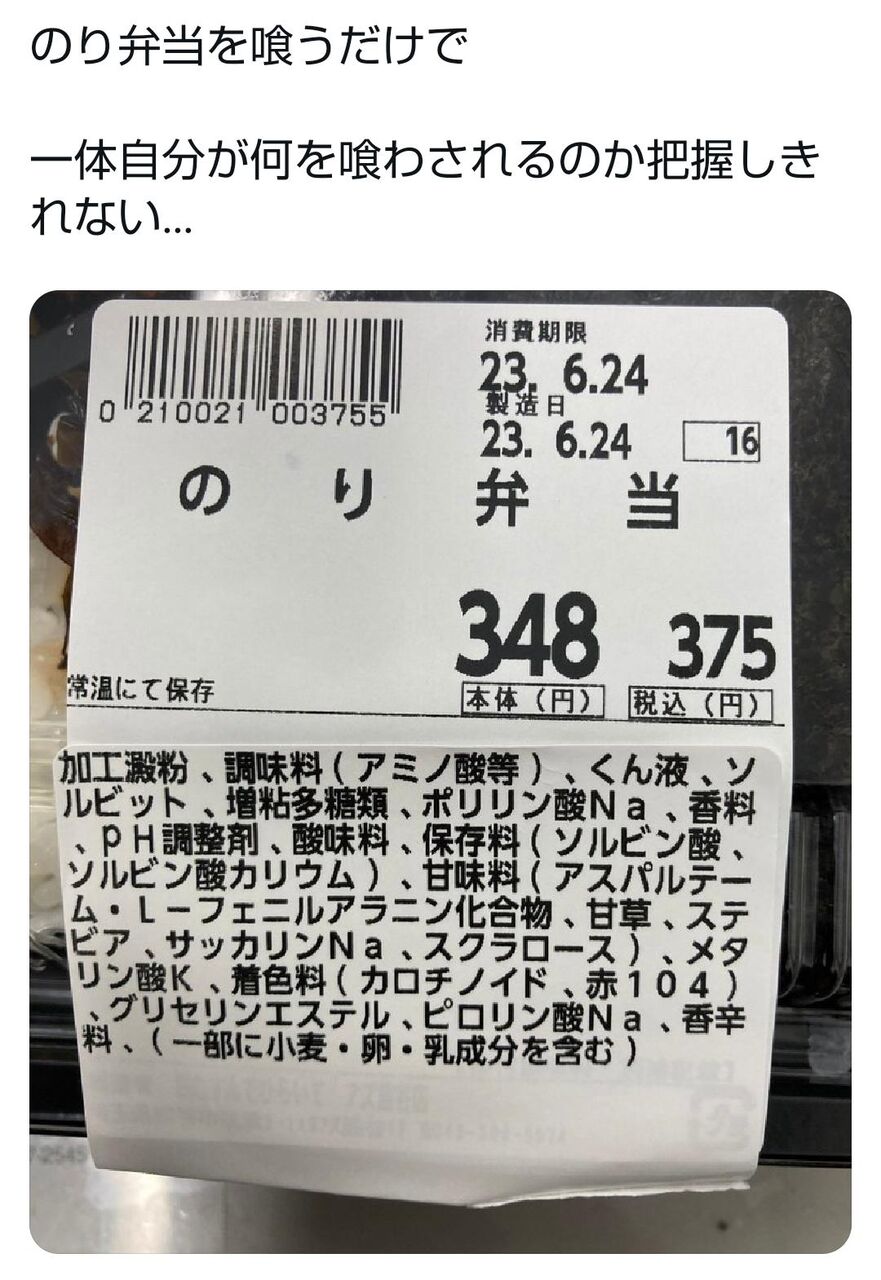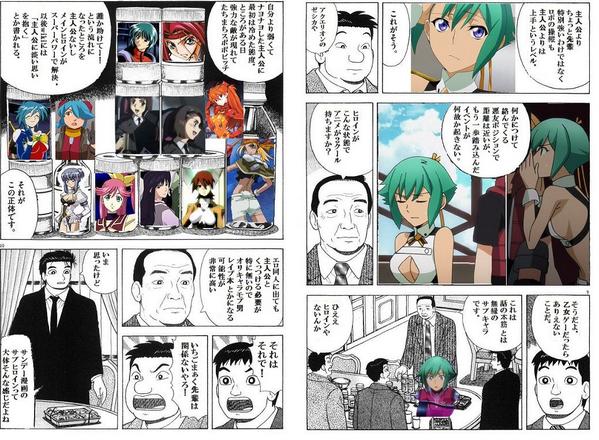
Here is the extracted text from the image: — Oishinbo 101 Behind the Ingredients Yasuda Tsukasa – Is it a mystery? Unknown culinary investigation. Did you examine the sushi ingredients from Kyoto? Ah, as you can see, yes, I just came from the neighborhood, but what is it? – This is Yamashita. Actually, the real sushi ingredients and seasonings have been contested. Are these the real things? Look, look, every dish made with these seasonings is delicious, and I know. The seasoning is extraordinary. How is it, I see! Without knowing the components of the fatty fish, you wouldn’t know the flavor! Wow? Ascorbic acid was strong (Vitamin C). It’s essential! It’s in hand now. With just this ingredient, defects immediately emerge. It’s not just sushi! The gastrointestinal tract… It’s not just for good products, but also trying to expose the essence based in Tokyo. The ones who create and save are significantly challenged. Last year, the situation has become very serious. This flavor variety, I will take care of it! It seems I can’t do anything, making this place and calming the minds afterward is crucial. For an extended period, it’s important to understand. Experimenting with 38 items and testing the body… There are questions, such as the ingredients’ compatibility. The characteristics of the dish have been researched. The question remains. Would it be suitable?? Thus, only part of this culinary exploration remains…
I think there are many people who don’t even know what additives are in the first place.
Die, fat.
You should just buy the more expensive one.
I can only think that you’re trying to paint it in a bad light, but isn’t there actually no problem?
Sometimes it’s even more dangerous without additives…
Shameless consumers who only seek their own benefits.
I wonder if the hearts of Japanese people have also turned to plastic.
No matter what you eat, humans will eventually get sick and die.
The real thing is “expensive,” “inconvenient,” “doesn’t last long,” “looks dirty,” and “has a bland taste.”
There’s nothing good here.
First of all, all the information in the thread is false…
In discussions about the toxicity of additives, there are those who cannot outright say that additives are bad, so they criticize the raw materials and work processes, making it seem as if additives are the problem.
Old preserved foods contain an outrageous amount of salt, so that is definitely worse for your health.
What is the heart of Japan?
People often focus only on the disadvantages of additives and preservatives, but the disadvantages of foods that do not use them are often not mentioned.
Because I often eat with peace of mind since I’m using it.
Both salt and sugar, as well as miso, are bad for the body in excess, so they should be avoided.
Let’s try making sausages and other things without additives.
It’s impressive how they seem to want to say that just because the country recognizes it, it means there’s no toxicity.
There is no Japanese spirit.
I certainly dislike smelly pickles.
In terms of health, the past when seasoning centered around salt was actually less healthy.
A scene where bottles of additives are lined up.
If you look closely, there are a lot of ordinary foods like sesame and soy sauce mixed in, which is amusing.
So, has there ever been a sudden discovery of toxicity in natural foods?
That said, I hope they continue to make traditional pickles without using additives.
It is healthier than the era of calories equating to nutrition.
When you research the eating habits around the Edo period, you realize that it wouldn’t be feasible by today’s standards… so saying that natural is better is definitely not true.
Humanity has improved technology for convenience to solve problems like not being hungry, such as when food rots before it can be transported from far away, yet when such technology becomes common, worthless trash always emerges claiming that it is not real.
Just eating a noriben makes me unable to grasp what exactly I’m consuming… 0 210021 003755 Expiration date 23.6.24 Manufacturing date 23.6.24 16 Noriben 348 375 Base price (yen) Including tax (yen) Store at room temperature Modified starch, seasonings (amino acids, etc.), liquid smoke, sorbitol, thickening polysaccharides, sodium polyphosphate, flavoring agents, pH adjusters, acidulants, preservatives (sorbic acid, potassium sorbate), sweeteners (aspartame, L-phenylalanine compound, licorice, stevia, sodium saccharin, sucralose), potassium metaphosphate, coloring agents (carotenoids, red 104), glycerin esters, sodium pyrophosphate, spices, (contains wheat, eggs, and milk components)
Realistically speaking, just having one octopus sausage in there…
We have to list this amount of additives.
It is difficult to live without encountering additives in modern Japan.
This is a secret, but…
Tofu made using traditional methods that Mr. Yamaoka praises highly.
That “nigari” is a food additive.
It feels like everything added besides seasonings is bad, just like in the old days.
Wasn’t it on the cola side?
It’s really sad for someone to be written about like this after giving an interview.
I sometimes feel that they speak quite freely because they have no experience of hunger or fear.
Consumers love additives! Well, that’s true.
It has emerged… the Japanese spirit.
At times like this, it’s unsettling how quiet Shiro is.
There may also be cases where dishes made using traditional methods are later found to be harmful.
However, it’s incredible to think that we live in an era where we can survive without being cautious about food at all.
I don’t really care much, but I’ve hardly ever experienced food poisoning…
When you cook for yourself, you really feel the huge advantage of food lasting longer…
Sesame is good, right? Sesame is.
That’s amazing effort.
There must have been a tremendous amount of trial and error.
I don’t like takuan.
It’s fine to say that it’s wrong to easily dismiss additives based on preconceived notions, right…?
Are you saying it’s poison without any basis?
Since it is recognized as an additive, it’s 300 times better than something that’s not recognized.
Isn’t it more reassuring to know what something really is?
Putting in the time and effort for something genuine at a low price is just the ego of the consumer.
There’s no way that food additives, which are strictly regulated by acceptable intake levels and safety factors, are more dangerous than ordinary foods.
The deliciousness of “Oishinbo” from when I no longer liked it.
Even natural substances can be classified as food additives…
I mean, if it’s not limited to additives, it’s the result of making it easier to eat and easier to preserve.
There are many foods that have changed and become different from their original forms, right?
I wonder why there is a trend that food made in factories is seen as bad.
There was an interesting episode where someone made additive-free cupcakes over three days for an event sale, and when they ate them, they pulled strings like natto and got food poisoning.
I wonder if the Japanese people’s hearts have changed to additives.
I think it’s true that saying something is toxic too easily invites criticism…
Abe Tsukasa is a garbage guy who makes a living off chemical seasonings and preservatives!!
It’s understandable that we still don’t really know how the results will manifest from continuously consuming a substance that hasn’t been around for that long, considering humans have been eating for tens of years.
Individual intake also varies.
If we’re talking about food additives, I like the analogy where onions are treated as a food additive.
Food poisoning is often talked about lightly, but…
If it becomes severe, you can die normally.
A fierce debuff that causes the internal organs to continue degrading for several years…
Well, that’s going to result in a business suspension due to food poisoning.
The idea that food should be as close to nature as possible leads to the foolishness of giving honey to babies.
It makes me feel like that.
How can I live without food additives?
My dad really hates additives.
“They’re putting in things like amino acids!” they say in anger.
Bakawa ha~
Onions are dangerous for dogs and cats and can cause death if eaten.
You can extend the days with salt, vinegar, and chili peppers!
There’s often a talk about how McDonald’s fries don’t rot! But I wonder what the problem is just because they don’t rot…
Well, it’s strange to have an environment set that is said not to decay.
It’s too rough…
If we look at the lifespan of modern people and the slowness of aging, it can be attributed to food additives.
As a result of making it easier to eat and store, this grand experiment was a great success…
Even people in the past would probably use food additives if it made things safer and even tastier.
The lifespan is increasing, so the benefits are probably outweighing the drawbacks.
The pigeons around here seem to be eating quite a bit of additives through leftover food…
This pigeon is not natural… it is a pigeon that has been artificially fed!
I might say something like that.
However, even if old meals were preserved, they would last about a week, which is quite challenging…
I could agree on the topic of experiments with food because I usually think that way.
But it’s not limited to additives, you know.
Can we say it’s like insect-eaten if you put dye in your mouth?
They say they are experimenting with food additives.
Traditional foods are the results of experiments conducted by people of that time, right?
What is added to food in the world is
– “Additives” that are recognized for their safety
“Non-designated additives that are not permitted due to safety concerns.”
– A material that hasn’t been studied in either category is classified as “food.”
The thing that is being targeted by crazy people is “additives.”
Even if we exclude “non-designated additives,” there are things that are neither “additives” nor “non-designated additives” that have risks we don’t fully understand, and things that have slightly altered manufacturing methods so they aren’t called “additives” at all are completely ignored, which can only be said to be unworthy of discussion.
Emergency food can be said to be fundamental to human history and everything.
The amount of food that can be eaten is the very measure of the size of humanity’s domain.
It’s not that it’s out because it’s an additive.
It has been recognized as an additive because it meets the OK standard, but…
If you don’t touch it with your hands in the first place, the speed at which it rots or molds is completely different.
In countries that are extremely dry rather than hot and humid like Japan, deterioration is slower…
Using minerals and ashes does feel a bit resistant emotionally, but it’s something that’s been done since ancient times.
The opposition to food additives comes from a kind of distrust towards industry and science.
We are in the midst of a grand human experiment with something that humanity has never eaten before.
That is certainly an undeniable fact.
There are actually cases where the government initially approved something but later banned it due to the discovery of toxicity.
But well, I don’t plan on having kids and I currently have no body issues, so it’s fine…
Sodium nitrite in processed meat was originally included in saltpeter and had been used for a long time.
Since things like mushrooms can later turn out to be toxic, food in general is quite experimental.
I think it’s bad if it’s as bad as Meat Hope.
The sudden prohibition is not limited to additives; there are also foods like raw liver.
Even the bonito flakes that are used as if they are a matter of course in Oishinbo.
If you go to Europe, it’s a dangerous substance full of mold, you know?
It’s an old manga, so… I wonder how it was back then?
Why are people who generally dislike additives basically anti-vaccine?
Seaweeds contain arsenic, so they couldn’t be sold or had to be sold with warning labels.
When it comes to experiments, the results were fine, but it was due to the additives.
It’s quite foolish to try to avoid that.
Don’t buy it.
There are quite a few books that have done pretty well against real companies like that.
I wonder if they ever get scolded for that kind of thing.
Well, if an individual’s claim is that additives are bad, that’s fine, but it’s not right to use it to pressure producers.
The reason I have such a biased perspective is that I lived through the era of pollution problems.
The idea that all chemicals are bad binds us, doesn’t it?
Taking too much is bad for your body, of course.
Even salt, sugar, umami, and additives.
What kind of mushrooms can insects that specialize in mushrooms eat safely?
There are people who have a mindset that equates science with poison, right?
It feels like hypocrisy to claim no use of umami seasoning while using yeast extract.
Well, it’s not like there’s any particular problem, but…
Cultivating nature is just a series of chemistry, isn’t it?
In modern times, I’ve started to become a bit wary of people who are overly obsessed with organic foods, and I wonder if I have developed a fear of extremes.
Isn’t the medicine you take when you’re sick full of additives?
How far do we have to go to call something a food additive?
Is putting soy sauce on sushi considered a food additive?
Ajinomoto is made from the waste molasses after squeezing sugarcane, so while saying it’s bad for the body, the bourbon made from it is amazing, right?
I want to cherish Yuu-chan’s spirit, don’t you?
It seems that sometimes things that are overly organic can also be more dangerous.
Including fraud and pseudo-science…
Even things in nature that seem non-toxic can sometimes have toxic individuals.
What is non-synthetic vitamin C if synthetic vitamin C is just called synthetic?
In fact, the food that the Emperor eats is bought from specific farmers and businesses that practice pesticide-free organic farming, so aren’t additives dangerous?
The anonymous user is only defending additives that have antibacterial effects or extend the shelf life of food.
Isn’t it unnecessary to have functions like gloss and color variation just to make it easier to sell to consumers?
Speaking of which, in the past, Yamaoka and Kuriko used to say that foods made with chemical seasonings would make their tongues tingle, but they stopped saying that in the latter half?
What is scary about natural toxins is…
Toxic and non-toxic ones hybridizing and the one that looks completely non-toxic turning out to be toxic.
It’s happening in reality that multiple types of pufferfish are hybridizing, and their toxic parts are mixing.
It’s scary that just having knowledge doesn’t guarantee everything will be okay.
It’s funny to go to a natural foods store and see dried vegetables and all sorts of terrible dried fish lined up.
It’s overpriced, so I’m not buying anything.
It’s only in underprivileged families that they tend to get caught up in such extremes.
It’s nice to have neighbors who suddenly move from the city and start organic farming…
Because they artificially improve natural things to make them easier to eat.
Natural foods are often the easiest to eat and the best for your body.
Yamaoka keeps saying poisonous things whenever something happens, and his desire to steer the conversation in that direction is too strong.



![[Manga] The magic trick that everyone tried to master as kids but couldn’t is trending, lol.](https://otaku-reviews.net/wp-content/uploads/2025/06/bf53dd2f.jpg)
![[Manga Time Kirara] Tell me your favorite couple in Kirara.](https://otaku-reviews.net/wp-content/uploads/2025/06/7f363a8b.jpg)
![[Gundam GQuuuuuuX] Even though you’re a Newtype, you’re so insensitive, Egusabe-kun.](https://otaku-reviews.net/wp-content/uploads/2025/06/b96ae33d.jpg)
![[Rune Factory] I’m sorry, but I live behind the general shrine.](https://otaku-reviews.net/wp-content/uploads/2025/06/af0f4933.jpg)
![[Fullmetal Alchemist] I have no certainty, but I feel like Envy is the weakest among the homunculi.](https://otaku-reviews.net/wp-content/uploads/2025/06/da613d5c.png)
![[Thunder thunder thunder] I thought this cover was sexy… so I bought it, and it turned out to be more interesting than I expected.](https://otaku-reviews.net/wp-content/uploads/2025/06/d303d5fc.jpg)